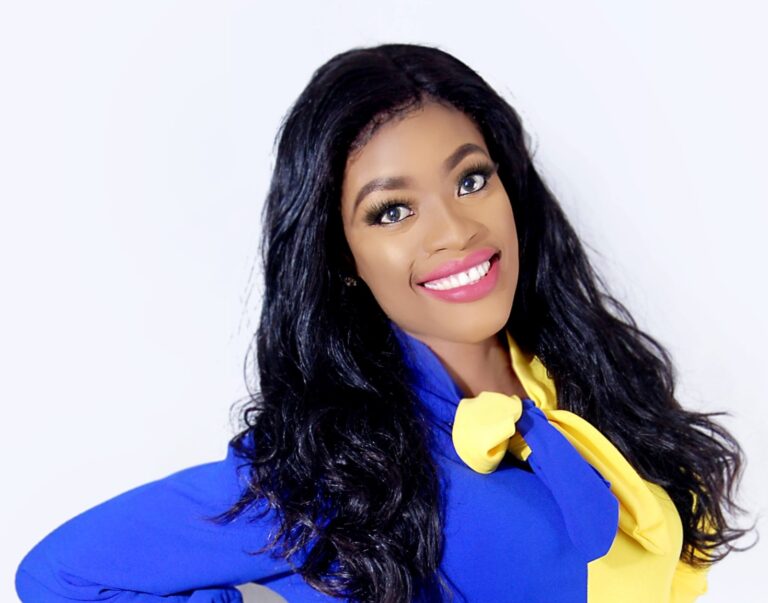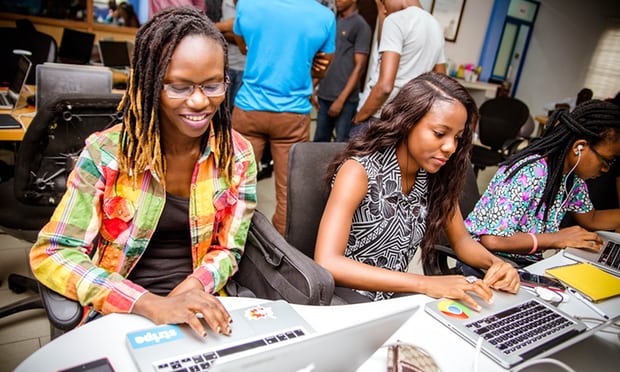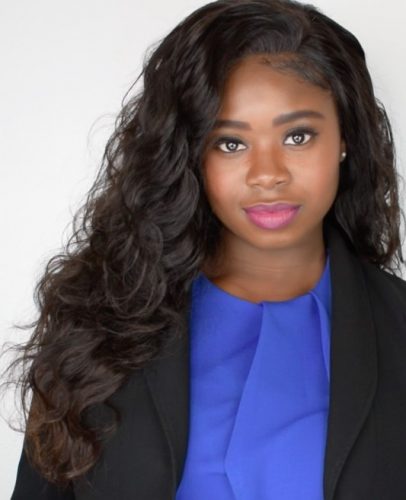Life they say is a series of building, and there is no good innovation without human impact. It takes a certain level of bravery to dare to be different and thrive in the STEM sector. Multi-award winning social innovator Amanda Obidike is one of the women breaking boundaries in STEM globally.
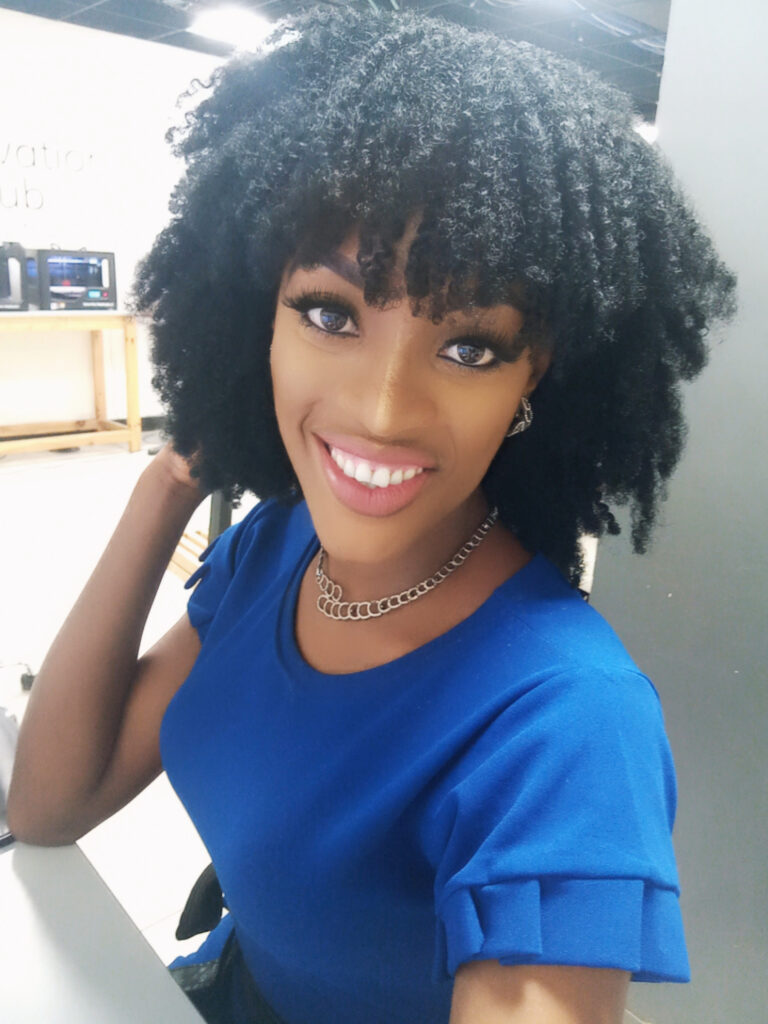
The technologist and scientist is the founding curator of the WEF Global Shapers, Ozubulu Hub and Executive Director of STEMi Makers Africa. Her role in this position is to provide leadership, strategy management and oversee the design and implementation of sustainable Community projects and STEM Education across 19 Sub-Saharan countries by preparing the next generation of Africans with STEM lucrative skills for Africa’s workforce.
In addition to STEM, she addresses thematic topics on Social Innovation, Data Science, Youth Development, Entrepreneurship and socio-economic policies. In 2020, Amanda received several awards including the Global Award for Achievement by TechWomen 100 and 30 Under 30 Inspiring Leaders of Africa.
Amanda got an opportunity to be trained by IBM in Business Intelligence/Analytics after 8 months. Upon completion, she took the initiative to serve as a knowledge panel in preparing Africans with 21st-century skills and future-focused options for an emerging workforce.
This was her inspiration, her driving force to starting STEMi Makers Africa.
She serves as a Mentor in the New York Academy of Science, Cherie Blair Foundation, the 1 million Women in Tech, Global thinkers for Women where she lends her voice, knowledge, and serve as a role model to girls in Africa.
She currently serves on the Leadership Team of the 500 Women Scientists, USA and Trustee Board of the MAI Foundation. The amazing amazon shares her inspiring story with Women of Rubies
Childhood Influence
I never had a background in Technology and Engineering. I have always dreamed of one day leading currency operations in the Central Bank of Nigeria. Growing up, I was a curious, adventurous, and daring girl. I went to different secondary schools cutting across 3 different geopolitical zones in Nigeria, gave myself to community volunteering, travelling, and learning how to do business.
Inspiration behind STEMi Makers Africa
STEMi Makers Africa emerged when I suffered underemployment and depression in 2O18. The meaningful and lucrative jobs available required technical skills that I didn’t originally have after graduation. Nigeria also began to transfer major resources and job opportunities to skilled professionals and expatriates due to a lack of competent and domestic STEM workforce.
STEMi Makers Africa was founded to address the leaky unemployment pipeline and break the wall of Inheriting fragmented and disconnected education institutions in Africa.
If current trends continue, by 2050 some one-third of Africa’s one billion young people will lack basic proficiency in math, reading, and STEM subjects. Millions will be unemployable and unproductive. To remain competitive in a growing global economy where 96% of jobs are now automated, we are raising African talents and achievement in STEM Subjects, and Skills of the Future by empowering Educators, marginalized communities and students to be self-reliant or effectively transition from education to employment.
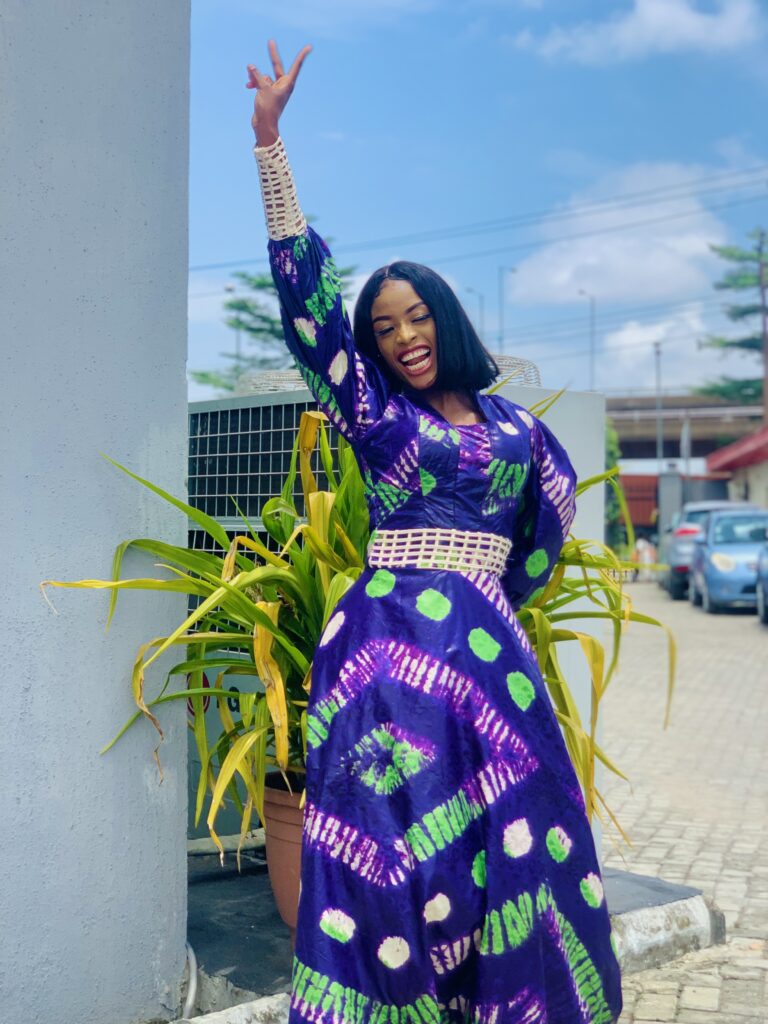
Impact and testimonials since inception
STEMi Makers Africa is a non-profit organization that builds diverse African talents with lucrative STEM resources, skills and currently designed a national innovation base that supports key sectors of the economy, including agriculture, energy, healthcare, information and communication technologies, manufacturing, and artificial intelligence.
We have maintained one of the greatest strategies in helping 78+ communities in 19 African countries and 30,000+ young people develop job skills, improve educational outcomes, provide opportunities to succeed and we are planning ahead not to leave the younger generation feeling displaced and inheriting a more fragmented world than we live in today. Through our innovative approach to education and capacity building, we emerged winners of the 2021 Stroeous award for Global positive Impact on Innovative Solution, became a Falling Walls Berlin Engage Finalist for Breakthrough of the Year in the Digital Education category, 2020.
Just recently, one of our Educators who was a recipient to our first STEM Integration training for Educators got accepted for a 4 year USA Teacher Exchange Fellowship, which is renewable. We recorded 51 Internship and job positions for our project Kuongoza mentees program alone for 2O21.
Journey so far
The journey has been rocky, yet tremendous. There are times we get concerned about resources, partnerships, effectively managing operations across other African countries, but we keep pushing and leaving an indelible mark that can one day inspire esteemed organizations to collaborate with us.
Managing it all
My dear! (laughs)
I believe it’s due to the value I bring and the confidence people have in me. Majority of what I represent sprung from people’s recommendations, and organization appointments. I count it an honor and do my best to serve in the best capacity I can.
Awards and recognition
I was given the Global Award for Achievement by TechWomen 100, in recognition of leading the way for future generations of tech talent, shaping the future of the technology industry and having a responsibility as a role model to share my experiences, laying the foundations for others to follow in the wake of technology. My driving force as an African woman who was under-employed and depressed is to Build an “Africa By Us, For Us” ecosystem that prepares diverse young talents with future-focused options in STEM lucrative pathways to become more experienced for Africa’s workforce. As a social innovator, I strengthen competencies, empower the next generation of Technologists, Engineers, and Innovators by training Educators with new, research-based instructional pedagogy, hands-on resource tools to ensure their students are allowed to solve ill-defined problems, make real-world connections while deepening their content knowledge and preparing them for STEM careers.

Kuongoza Mentoring Program
Our Project Kuongoza Mentoring Program has made significant strides and supported 195O+ women aged 15-35 access new markets, work flexibly and integrate these learned skills needed for the workplace – after being mentored.
Second, the STEM Integration for Educators as an ongoing partnership with the U.S Consulate General to cultivate a STEM Workforce, streamline STEM Education and refine Educator’s instructional pedagogy where students are allowed to solve ill-defined problems, make real-world connections while deepening content knowledge and preparing them for STEM careers. We have further inculcated these educator projects across Kenya, Uganda, Zambia and Cameroon.
Representation of women and girls in STEM
Women make up half of the total of Nigeria’s college-educated workforce, but only 11% of the technology and engineering workforce are women. Research shows that girls start doubting their STEM intelligence by age 6 and continue to lose confidence as classes become less gender-balanced and more intimidating. Whatever the cause, it’s clear that parents, educators, allies and we as a community must work together to show girls that no subject is off-limits simply because of their gender. Women and girls remain underrepresented in STEM and this is why we combine proper preparation in middle, high schools and universities, offer hands-on resources and opportunities, and provide young girls in Africa with women role models and subject matter experts in STEM.

Challenges
Resources like human resources, resource tools, access to investment and partnerships.
Other projects and activities
Mentoring Support:- Since 2016, I mentor at the New York Academy of Science, Cherie Blair Foundation, Global Thinkers Forum where I offer mentees academic, business support and invaluable life skills to thrive.
Policies:- In addressing policy concerns that revolve around governance and public administration, I serve as Assistant Director in Public Relations to the Nigerian Global Affairs Council.
Children Development and building:- I offer psychosocial development support and community management in the Royalty Children’s Network.
Gender Issues:- I offer pro-bono technology services to women Entrepreneurs, to help them incubate, innovate and commercialize their ideas and also serve on the 500 Women Scientists Team.
3 women who inspire me and why
Tobiloba Ajayi is transforming the face of cerebral palsy in Africa through advocacy, counselling, capacity building, referral services, and educator training. I am inspired by the work she does in the Let the CP Kids Learn, a foundation she founded out of a desire to change the prevalent narrative about the intellectual capabilities of Children with Cerebral Palsy
Ngozi Okonjo-Iweala is showing us that it is possible to dream, and excel. She became the first woman and African to be Director-general of the WTO in March 2021
Melania Trump continues to serve as an ardent advocate for children and devotes her time and efforts to helping young people navigate the many issues they face in an ever-changing society. In 2018, she announced BE BEST, an awareness campaign that strives to promote a world for children based on healthy living, kindness, and respect.
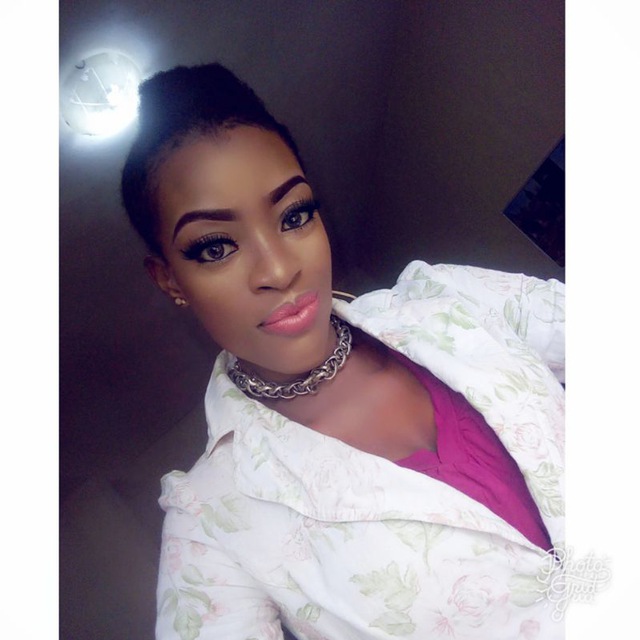
Nuggets on how to be successful in STEM as a woman
- Be fearless. Be free to Dream. Be free to collaborate. Be free to ask questions. Be free to excel and Be free to succeed.
- There may be hurdles in the journey but please maintain focus. STEM is a wonderful decision anyone can make. Feel free to reach out to the peers you admire or professionals in STEM who could share their stories, tips and advice that can help you in the field.
- Get yourself a mentor and advisor.
- Volunteer with community led organizations who are driving STEM Education.
- We need more women in STEM fields. ILO stated that Women are 30% more likely than men to lose their job as a consequence of automation and low STEM skills.
- There is a lot we can do in this field for our better livelihood, economy and improving retention of young women in STEM Careers.
Being a Woman of Rubies
Proverbs 31:10 says “Who can find a virtuous and capable woman? She is more precious than rubies.” A Woman of Rubies is full of wisdom and strength. She is an enabler, a teacher, a friend, a community mobilizer, tenacious and kind. Yes, I am a Woman of Rubies.
You can reach out to Amanda via the links below
Twitter @amandachirpy
Instagram @amandachirpy
Linkedin Amanda Obidike
Facebook Amanda Obidike
